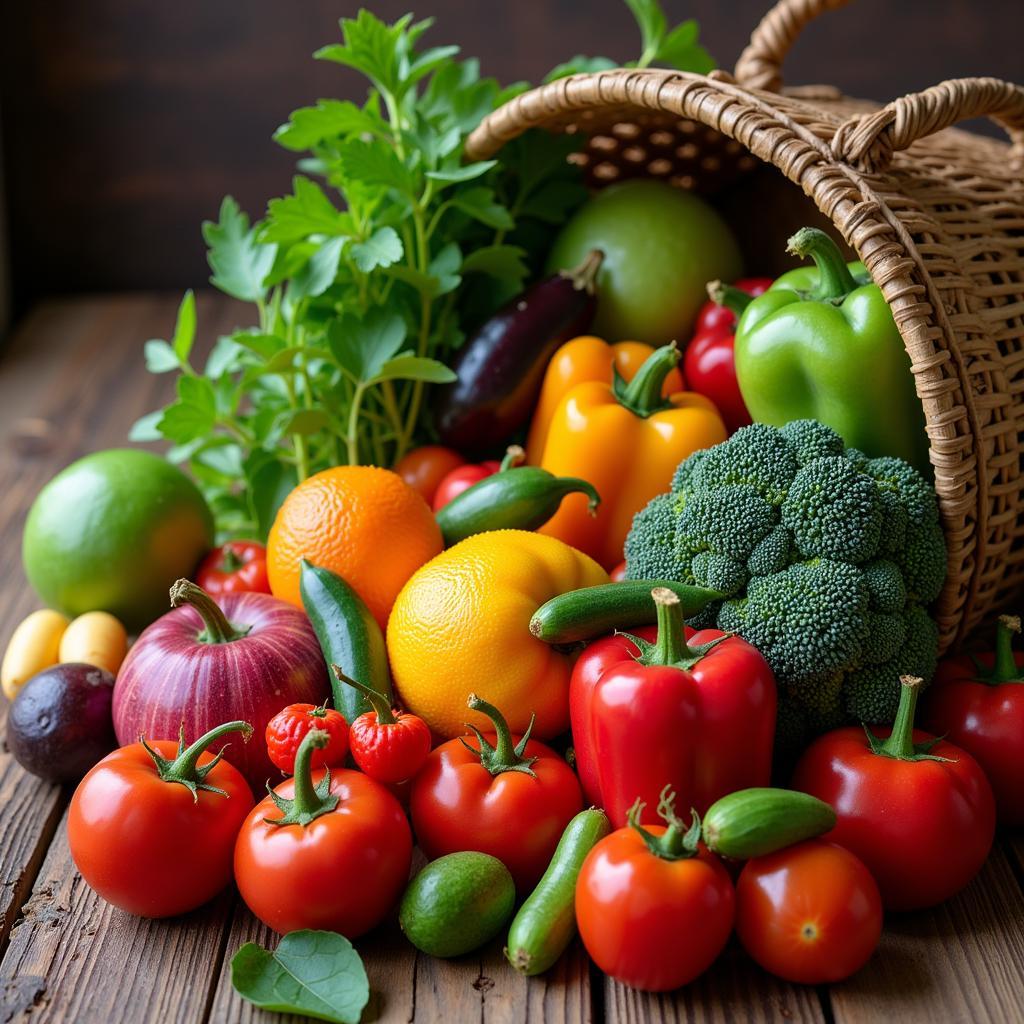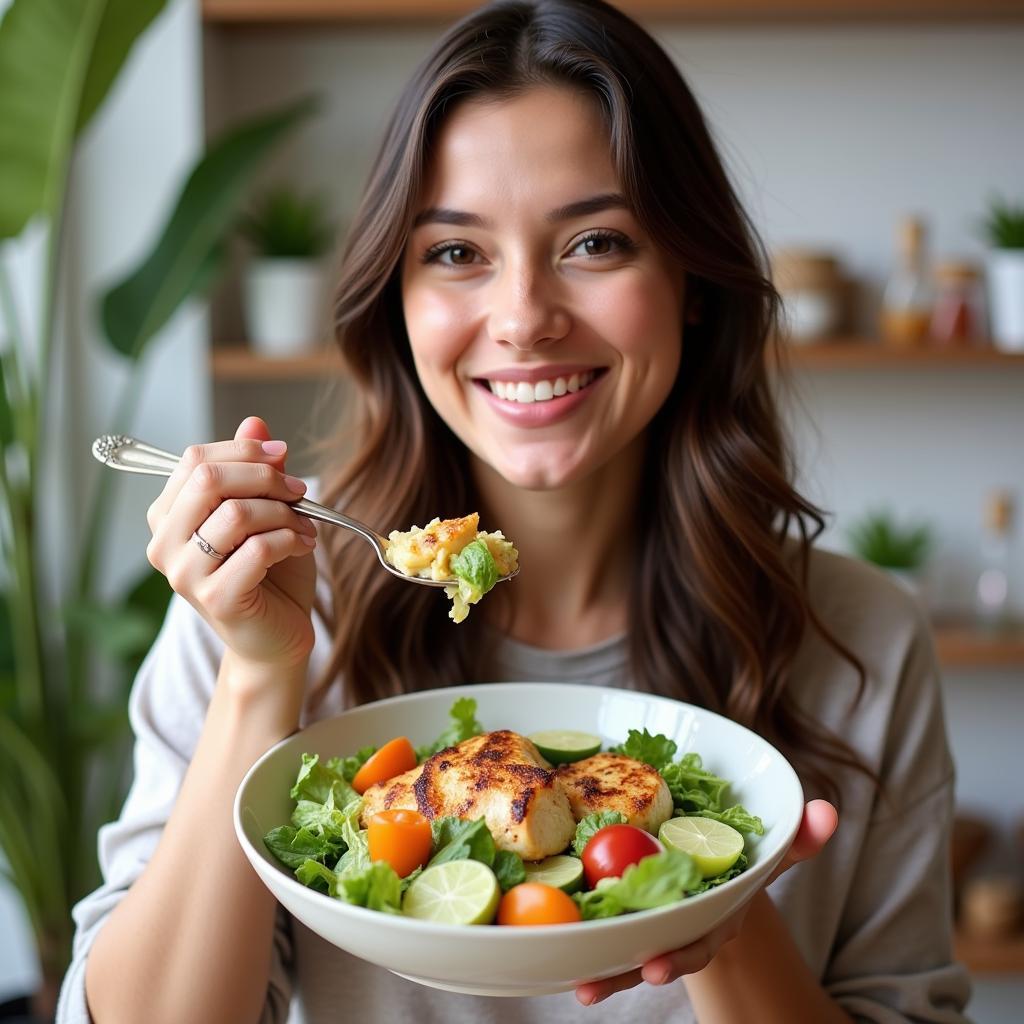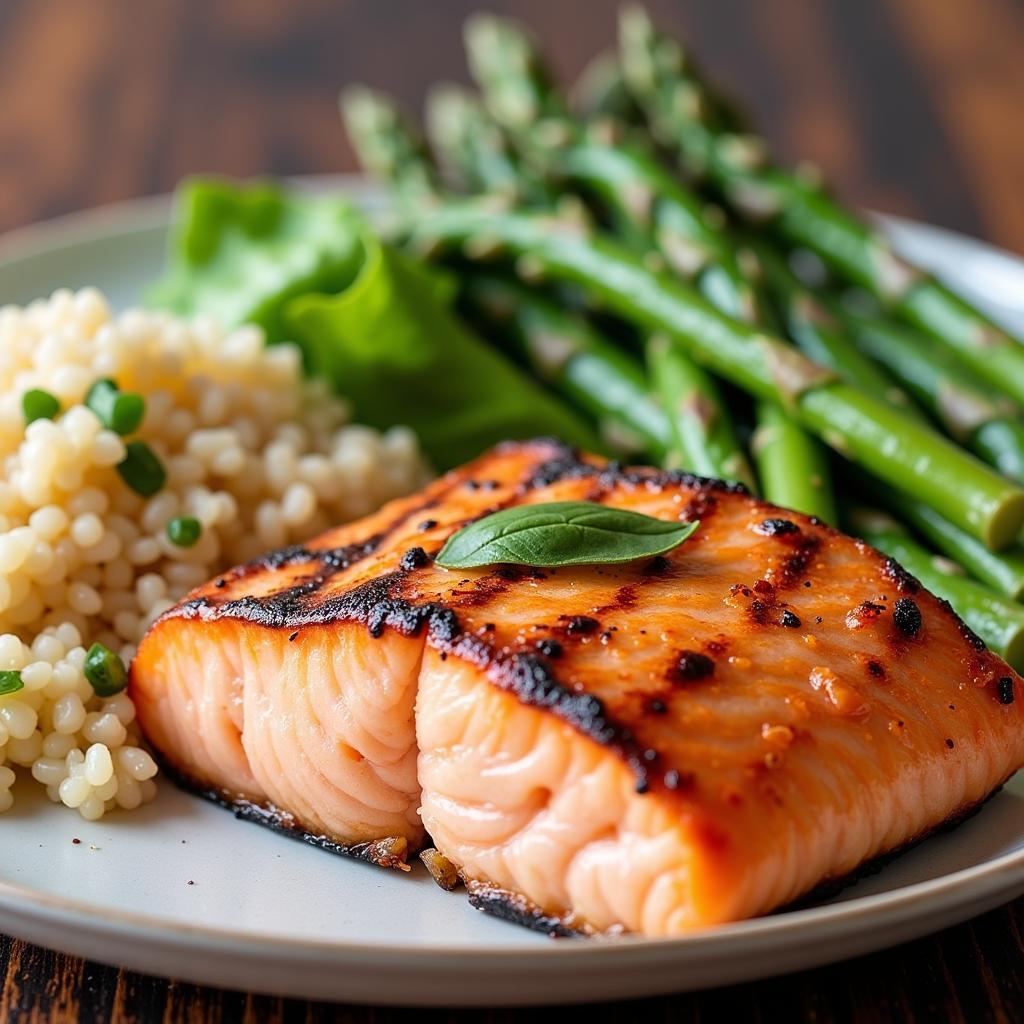When it comes to our health, we often focus on what we see on the outside. But what about the intricate network of veins and arteries working tirelessly beneath the surface? Maintaining optimal vein health is crucial for overall well-being, and what we eat plays a significant role. By incorporating certain foods into our diet, we can provide our bodies with the necessary nutrients to support healthy blood flow and strong, resilient veins.
 Assortment of Colorful Fruits and Vegetables
Assortment of Colorful Fruits and Vegetables
Understanding Vein Health and the Importance of Diet
Our veins are responsible for carrying deoxygenated blood back to the heart. This intricate system relies on healthy blood flow and strong, flexible vein walls to function optimally. Factors like genetics, age, and lifestyle choices can all influence vein health, and in some cases, lead to issues like varicose veins or spider veins.
While there’s no magic bullet to completely prevent vein problems, a balanced diet rich in specific nutrients can make a world of difference. These nutrients work synergistically to:
- Improve Circulation: By enhancing blood flow and preventing clotting.
- Strengthen Vein Walls: Boosting collagen production and improving elasticity.
- Reduce Inflammation: Minimizing swelling and discomfort often associated with vein issues.
Power Up Your Plate: The Best Foods for Vein Health
Ready to give your circulatory system some love? Start incorporating these vein-boosting foods into your daily meals and snacks:
1. Flavonoid-Rich Foods: Nature’s Vein Protectors
Flavonoids are potent antioxidants found in a rainbow of fruits and vegetables. They help improve circulation, reduce inflammation, and strengthen vein walls.
Load up on these colorful options:
- Berries: Blueberries, raspberries, strawberries
- Citrus fruits: Oranges, grapefruits, lemons
- Apples: Especially the skin!
- Grapes: Particularly red grapes
- Onions: All varieties, including red and white
- Spinach and Kale: Leafy greens are nutritional powerhouses.
2. Fiber-Rich Choices: Keep Things Moving
Fiber plays a crucial role in maintaining healthy digestion, which indirectly benefits vein health. A diet high in fiber can prevent constipation, which can put unnecessary strain on veins.
Add these fiber-rich foods to your plate:
- Whole grains: Oats, brown rice, quinoa
- Legumes: Beans, lentils, chickpeas
- Nuts and seeds: Chia seeds, flaxseeds, almonds
- Vegetables: Broccoli, Brussels sprouts, carrots
 Smiling Woman Eating a Colorful Salad
Smiling Woman Eating a Colorful Salad
3. Potassium-Packed Foods: Combat Water Retention
Potassium helps to balance sodium levels in the body, reducing water retention that can put pressure on veins.
Boost your potassium intake with:
- Bananas: A classic potassium powerhouse.
- Avocados: Rich in healthy fats and potassium.
- Sweet potatoes: A nutritious and versatile root vegetable.
- Watermelon: A refreshing and hydrating source of potassium.
- Coconut water: A naturally electrolyte-rich beverage.
4. Water: The Essential Elixir
Staying hydrated is fundamental for overall health, including vein health. Water helps to thin the blood, making it easier for it to flow through your veins. Aim to drink plenty of water throughout the day.
5. Foods Rich in Vitamin C: Boost Collagen Production
Vitamin C is crucial for collagen synthesis, a protein that provides structure and elasticity to vein walls.
Include these vitamin C-rich foods:
- Citrus fruits: Oranges, lemons, limes
- Bell peppers: Red, yellow, and orange varieties
- Strawberries: A tasty and nutritious source of vitamin C.
- Broccoli: A cruciferous vegetable packed with vitamins and minerals.
- Kiwi: A small but mighty source of vitamin C.
Expert Insight:
“While genetics play a role in vein health, lifestyle factors like diet are modifiable and can make a significant impact,” says Dr. Emily Carter, a leading vascular specialist. “I always encourage my patients to focus on a balanced diet rich in fruits, vegetables, and whole grains to support healthy blood flow and strong veins.”
Beyond Diet: Other Tips for Healthy Veins
In addition to a healthy diet, here are some additional tips to support your vein health:
- Stay Active: Regular exercise, even moderate walking, helps improve circulation.
- Maintain a Healthy Weight: Excess weight puts added pressure on veins.
- Avoid Prolonged Sitting or Standing: Take breaks to move around and stretch your legs.
- Elevate Your Legs: When resting, elevate your legs to improve blood flow.
- Wear Compression Socks: If recommended by your doctor, compression socks can help support vein health.
Nourish Your Veins, Nourish Your Body
Taking care of our veins is essential for overall health and well-being. By incorporating these vein-healthy foods into our diet and making simple lifestyle adjustments, we can support our circulatory system and keep our blood flowing smoothly.
Remember: If you have any concerns about your vein health, it’s essential to consult with a healthcare professional for personalized advice and treatment options.
 Close-Up of a Plate with Salmon, Asparagus, and Quinoa
Close-Up of a Plate with Salmon, Asparagus, and Quinoa
FAQs about Diet and Vein Health
Q: Can diet alone cure varicose veins?
A: While diet can play a supportive role, it’s unlikely to cure existing varicose veins. However, a healthy diet can help manage symptoms and prevent further issues.
Q: Are there any foods I should avoid for vein health?
A: Foods high in sodium, saturated fats, and processed sugars can negatively impact vein health. It’s best to consume these in moderation.
Q: How long does it take to see improvements in vein health through diet?
A: Individual results may vary, but consistent healthy eating habits can lead to noticeable improvements over time.
Q: Can supplements help with vein health?
A: It’s best to talk to your doctor before taking any supplements, as they can interact with medications or have unintended side effects.
Q: What are the signs of poor vein health?
A: Common signs include varicose veins, spider veins, leg swelling, leg pain or cramping, and restless legs.
Need More Information?
For personalized advice on vein health and treatment options, please contact us at:
Phone: 02437655121
Email: [email protected]
Address: 3PGH+8R9, ĐT70A, thôn Trung, Bắc Từ Liêm, Hà Nội, Việt Nam
Our dedicated team is available 24/7 to answer your questions and provide support.